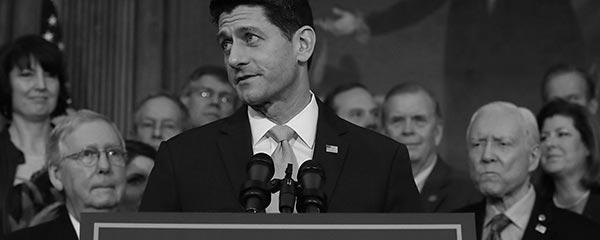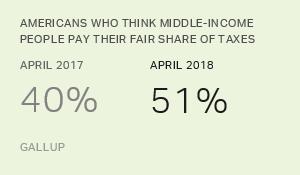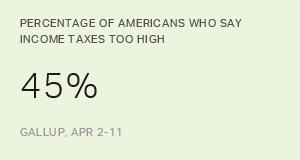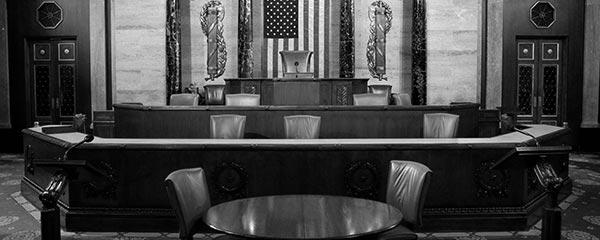Proposals to increase taxes on high-income earners and the wealthy are coming back into vogue. Presidential candidate Bernie Sanders has argued for a on the top income bracket, along with increased estate taxes. Candidate Elizabeth Warren would impose a on assets of rich Americans. New York Rep. Alexandria Ocasio-Cortez, although not a candidate for president, advocates the idea of .
The Democratic Party platform in the last election and closing tax loopholes benefiting those at the top, and there is every reason to believe that this will continue to be part of the Democratic platform in 2020. As one : "Raising taxes on the rich is emerging as a central theme for a party being pulled to the left by its invigorated self-described progressive wing."
Changing the Top Marginal Tax Rate Is Not New
The general idea of making changes to the top marginal income tax rate -- either up or down -- is certainly not new. The top tax rate has bounced up and down many times since the 16th Amendment establishing the federal income tax was ratified in 1913. The tax rate on top income earners started at 7%, soared to 77% during World War I, dropped to 25% during the 1920s, rose to 79% during the Great Depression and as high as 94% during World War II, stayed high through the 1970s, and then dropped in the 1980s and remained low in the years since. The current top rate was itself adjusted downward as recently as December 2017, although as a result of the Affordable Care Act, it now includes an increased surcharge for high-income earners.
So, the proposal to once again fiddle with the top tax rate is the latest iteration of what we've seen happen fairly regularly over the past century.
The tax system as it stands now, even with a lower top marginal tax rate than at many times in the past, remains highly progressive. The tax rate increases steadily as one's income increases, to the extent that the top . The bottom 50% of all taxpayers, based on their income (many of whom are excluded from having to pay any income tax), account for about 3% of all tax revenues.
Many of today's Democratic politicians are echoing efforts by other Democrats in recent years to address income inequality. Hillary Clinton said in her presidential candidacy announcement in 2015 that "the deck is still stacked in favor of those at the top." She in turn had essentially adopted one of Barack Obama's major policy themes, given voice by his frequently reiterated "fair shot, fair share, same set of rules" refrain. Obama never was too specific about raising income taxes on the rich, other than closing tax loopholes, but in his second term he did call for .
Americans Generally Favor Increasing Taxes on the Rich
The idea of taxing the rich resonates with Americans' underlying attitudes. For over a quarter of a century, Â鶹´«Ã½AV research has shown that a majority of U.S. adults believe upper-income Americans pay too little in taxes. A majority of Americans for 35 years have also said that money and wealth in the U.S. should be more evenly distributed among a larger percentage of the people. (This latter question, however, doesn't specify that it should be the government that does the redistributing.)
And a number of surveys conducted over the last year have shown that Americans believe the new tax law enacted in December 2017 favors the wealthy.
Support Varies Based on Specificity of Proposal
As we would expect given these beliefs, various proposals to increase taxes on the rich are generally supported by pluralities and majorities of the American public.
Â鶹´«Ã½AV's oldest trend question on this topic was first asked by Roper for Fortune magazine in March 1939, a time when the nation was still mired in the Great Depression. The wording was fairly draconian: "People feel differently about how far a government should go. Here is a phrase which some people believe in and some don't. Do you think our government should or should not redistribute wealth by heavy taxes on the rich?"
In that first survey, despite the challenging economic conditions, just 35% of Americans approved of the idea, while 54% disapproved. When Â鶹´«Ã½AV re-asked the question in 1998, a slim majority of 51% still disapproved.
In the eight times the question has been asked since 2008, reactions to this idea of "heavy taxes on the rich" have been mixed. In 2008 and 2011, the public disapproved by slight margins. But in surveys conducted in 2013, 2015 and 2016 (the latter being the last time we asked the question), slim majorities approved of the idea of heavy taxes on the rich in order to redistribute wealth.
Fox News more recently tested on those making over $1 million a year and on those making over $10 million a year, and found strong support in both instances. (Americans tilted negative when asked about higher taxes on those making over $250,000 a year.) This Fox News poll did not include specifics on the higher tax rate, asking respondents if they favored or opposed "increasing tax rates only on families earning over ($250,000/$1 million/$10 million) a year."
The New York Times recently asking about a "70% marginal rate on incomes above $10 million per year" and found 51% approve, while 45% disapprove.
But a recent to a similar question: "Would you favor or oppose raising the personal income tax rate for those with very high incomes, so that income of $10 million or more would be taxed at a rate of 70%?" Using this wording, 41% were in favor, with 52% opposed.
The New York Times did report -- as we would expect -- that over six in 10 Americans support the general concept of the government pursuing policies "to reduce the wealth gap."
We can conclude that there is majority support for the conceptual idea of raising taxes on the rich, but support is more evenly split for proposals that mention the specific 70% tax rate for top earners, recently promulgated by Ocasio-Cortez.
Both the CNN and New York Times online polls tested the idea of a wealth tax on those with assets of $50 million or more (as proposed by Sen. Warren). Both found majority support -- 54% in the CNN poll, and 61% in the Times poll. Neither poll attempted to explain the potential difficulties of regularly and precisely appraising the total net assets of rich people.
Cautionary Note: Majority of Americans Are Not Hostile Toward the Rich
Progressive politicians are advocating that the rich pay more in taxes as a practical way to increase revenues, and as a philosophic correction to what they think is an immoral and unjustifiable state of affairs when a few make a lot, and many make relatively little. But demonizing the rich may not be the most advisable course of action for these politicians. That's because many Americans don't harbor the heavy resentment toward the rich that could be assumed from recent political posturing.
A fascinating survey Â鶹´«Ã½AV conducted last year found that 58% of Americans agree that the "United States benefits from having a class of rich people," roughly similar to what we found in 2012 and 1990. Why? Perhaps Americans see the rich as providing an important source from which to extract tax money.
But there may be more to it. Having a rich class apparently provides a positive aspirational goal for many of us. Over six in 10 Americans say they themselves would like to be rich (and that includes as many Democrats as Republicans). It appears that while Americans think the rich should pay more into the tax system, Americans don't broadly view them as evil and of no benefit to our society.
Is Increasing Taxes on the Wealthy a Top Priority?
It's hard to find evidence that reducing inequality is a top priority for Americans. Very few (1% in our latest February update) mention inequality as the most important problem facing the nation. A December measure of Americans' priorities for the president and Congress found that "the distribution of income and wealth" tied for last in a list of possibilities.




